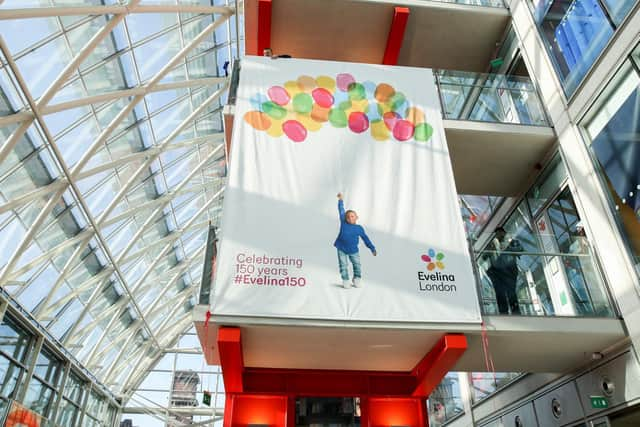Up to 100 children affected by rare syndrome linked to Covid-19
and live on Freeview channel 276
Professor Russell Viner, president of the Royal College of Paediatrics and Child Health, said on Thursday there have been "75 to 100" cases across the country.
A 14-year-old boy with no underlying health conditions treated at the Evelina London Children's Hospital is thought to be the first British child to die from the syndrome.
Advertisement
Hide AdAdvertisement
Hide AdProf Viner told BBC Radio 4's Today programme that it appears to occur after a child has been infected with Covid-19, and is the "body's immune system overreact(ing) to coronavirus".


He said that while parents should be aware of the illness, they do not need to be concerned.
"We can count the number of children that have died with coronavirus on the fingers of two hands, compared to over 30,000 in adults. And that tells us most of what we need to know," he said.
"This is a new syndrome. It appears to be happening mostly after coronavirus infection, we believe it's where the body's immune system overreacts to coronavirus."
Advertisement
Hide AdAdvertisement
Hide AdAccording to Prof Viner, the main symptoms of the condition are a high and persistent fever and a rash, while some children also experience abdominal pain and gastrointestinal problems.
He said that although some patients have required intensive care, others have responded to treatment and are getting better and starting to go home.
The illness is said to be similar to Kawasaki disease, which mainly affects children under the age of five, with symptoms including a high temperature, rashes, swelling and a toxic shock style response.
Prof Viner stressed that cases appear to be "falling away" as the number of Covid-19 infections in adults falls.
Advertisement
Hide AdAdvertisement
Hide Ad"The cases appear to be now disappearing. As we pass the peak, coronavirus in children, like in adults, is falling away," he told the BBC.
"This happens after coronavirus, so it appears to have peaked perhaps two to four weeks after the coronavirus peak.
"But now we think cases are settling. So parents need to be aware, but I don't believe they need to be concerned."
As of Wednesday, Evelina London Children's Hospital had seen around 50 children with the illness, according to medical director Sara Hanna, with around half since discharged.
Advertisement
Hide AdAdvertisement
Hide AdAntibody testing in collaboration with Great Ormond Street Hospital in north London, where cases have also been reported, found evidence that those with the condition previously had Covid-19.
The 14-year-old boy spent six days in intensive care at the Evelina and tested positive for the virus following his death, according to a report by his medical team published in The Lancet journal.
His main symptoms on being admitted to the hospital were a temperature over 40C, diarrhoea, abdominal pain and headache.
The teenager was part of a cluster of eight cases treated at the hospital over a 10-day period in April.
Advertisement
Hide AdAdvertisement
Hide AdThe youngest child was four and two others were six, according to the report in The Lancet, while all were previously "fit and well".
Medics said all of the children had similar symptoms when they were admitted, including "unrelenting fever", variable rash, conjunctivitis, swelling, pain and significant gastrointestinal symptoms.
Most had no significant respiratory symptoms during their time in hospital, although seven children were put on a ventilator to stabilise their cardiovascular systems.
Health Secretary Matt Hancock said last month that experts are investigating the new syndrome in children "with great urgency" but has stressed it is rare.
Advertisement
Hide AdAdvertisement
Hide AdResearch led by Imperial College London is looking at the characteristics of those who have been admitted to hospital, while information regarding the illness is being shared across the international community.